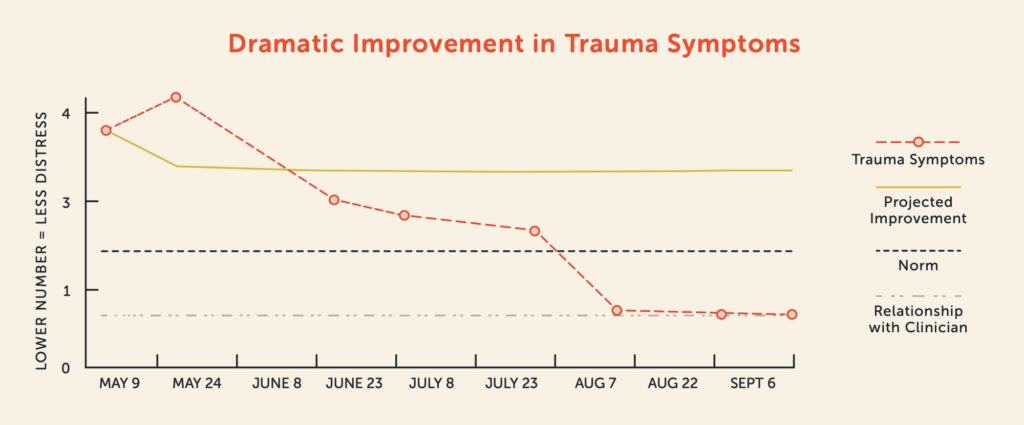
A client we’ll call Maria has been working with Chemical Dependency Counselor Nancy Graser for several months. Maria had a series of significant traumatic experiences within a short time, including being the victim of violence, requiring hospitalization and COVID-19. This is on top of childhood trauma.
To try to forget her pain and sadness, Maria turned to alcohol and eventually got a DUII.
“When I started working with her, she presented with extreme emotional issues,” says Nancy. “Almost all of her responses on our Feedback Informed Treatment (FIT) client were marked as severe. We spent the first few sessions almost exclusively discussing her responses to the survey and developed her treatment plan based on her FIT responses since these aligned well with what Maria wanted to address in treatment.”
“Maria has really committed herself to her chemical dependency (CD) treatment, and also engages in mental health therapy at another agency. She attends her two weekly CD treatment groups regularly and does her “homework,” which includes practicing mindfulness meditation three times a day. Over time, her Global Distress Score has dropped dramatically, and I’ve even seen her smiling recently. When I showed her the survey graph’s [improvement], she loved it. It seemed to validate the hard work she has put in and gave assurance that we were going in the right direction in treatment.”

LifeWorks NW uses Feedback Informed Treatment to ensure the best possible outcome for those we serve. Every individual session starts with the FIT survey to accurately assess the client’s emotional needs and guide the direction of the session.
“When Maria told me she was actually starting to feel peaceful and happy, I thanked her for having the courage to honestly share her feelings with me at the beginning of her treatment and her commitment to follow through with the treatment program that she and I developed together.”










